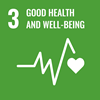Clostridioides difficile is a bacterium that causes severe diarrhea, especially after antibiotic use. Current treatments, like fidaxomicin and vancomycin, work for initial infections, but for more complicated or recurring cases, additional therapies such as monoclonal antibodies or fecal microbiota transplants are needed. However, new treatments are urgently needed due to increasing drug resistance. In this study, we tested a collection of compounds (MMV Pathogen Box) against C. difficile. We found 19 compounds that reduced bacterial growth by over 50%. Three of them, including MMV676558, were especially effective. These compounds also worked against different strains of the bacteria, and their ability to kill bacteria was similar to or better than current drugs. Additionally, they prevented biofilm formation, which is important because biofilms protect bacteria. We used advanced techniques to understand how these compounds work, and the results suggested they disrupt the bacterial cell membrane. One compound, MMV676558, was also tested in mice, where it improved survival, reduced tissue damage, and maintained healthy gut bacteria. This promising compound will be further explored as a potential treatment for C. difficile infections.
Reference
Phanchana M, Pipatthana M, Phetruen T, Konpetch P, Prangthip P, Harnvoravongchai P, Sripong C, Singhakaew S, Wongphayak S, Chankhamhaengdecha S, Janvilisri T. Identification and preclinical evaluation of MMV676558 as a promising therapeutic candidate against Clostridioides difficile. Biomedicine & Pharmacotherapy, Volume 180, 2024, 117469.
| Download the article at | Relevant SDGs |
|---|---|
 |
 |
| BC investigator | |
 Prof. Tavan Janvilisri Prof. Tavan Janvilisri |
 Tanaporn Phetruen, Ph.D. student Tanaporn Phetruen, Ph.D. student |
 Pattanai Konpetch, M.Sc. student Pattanai Konpetch, M.Sc. student |
